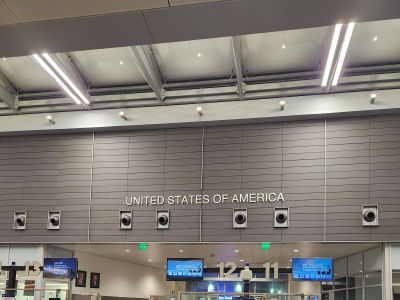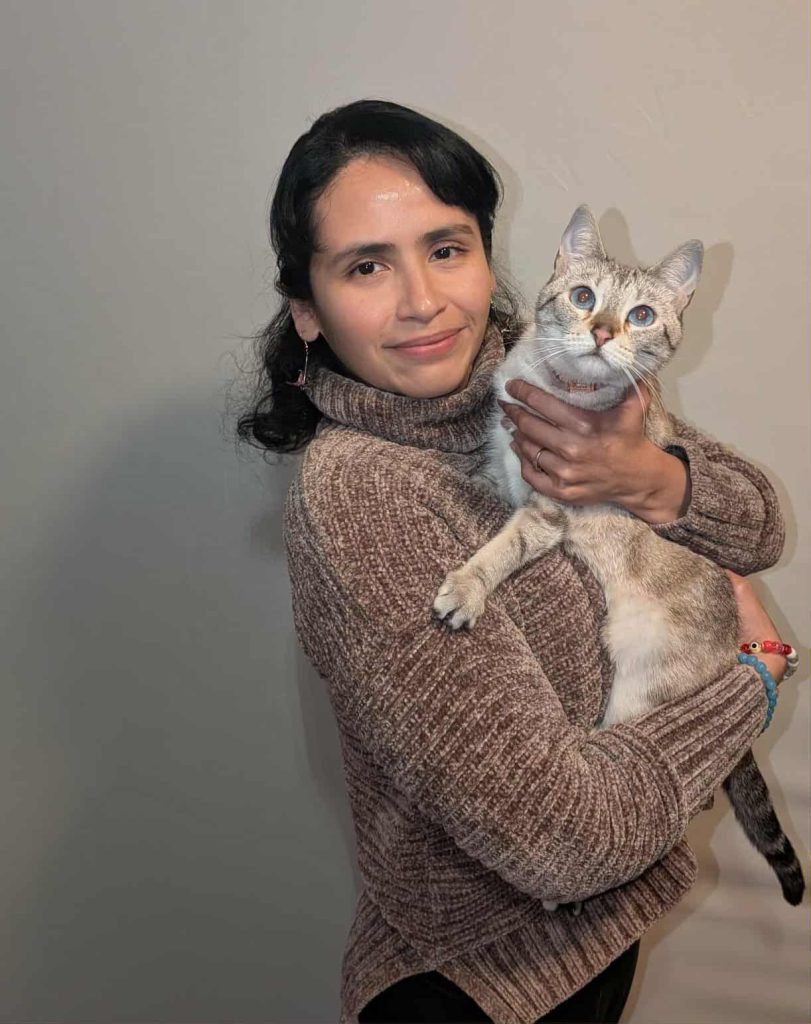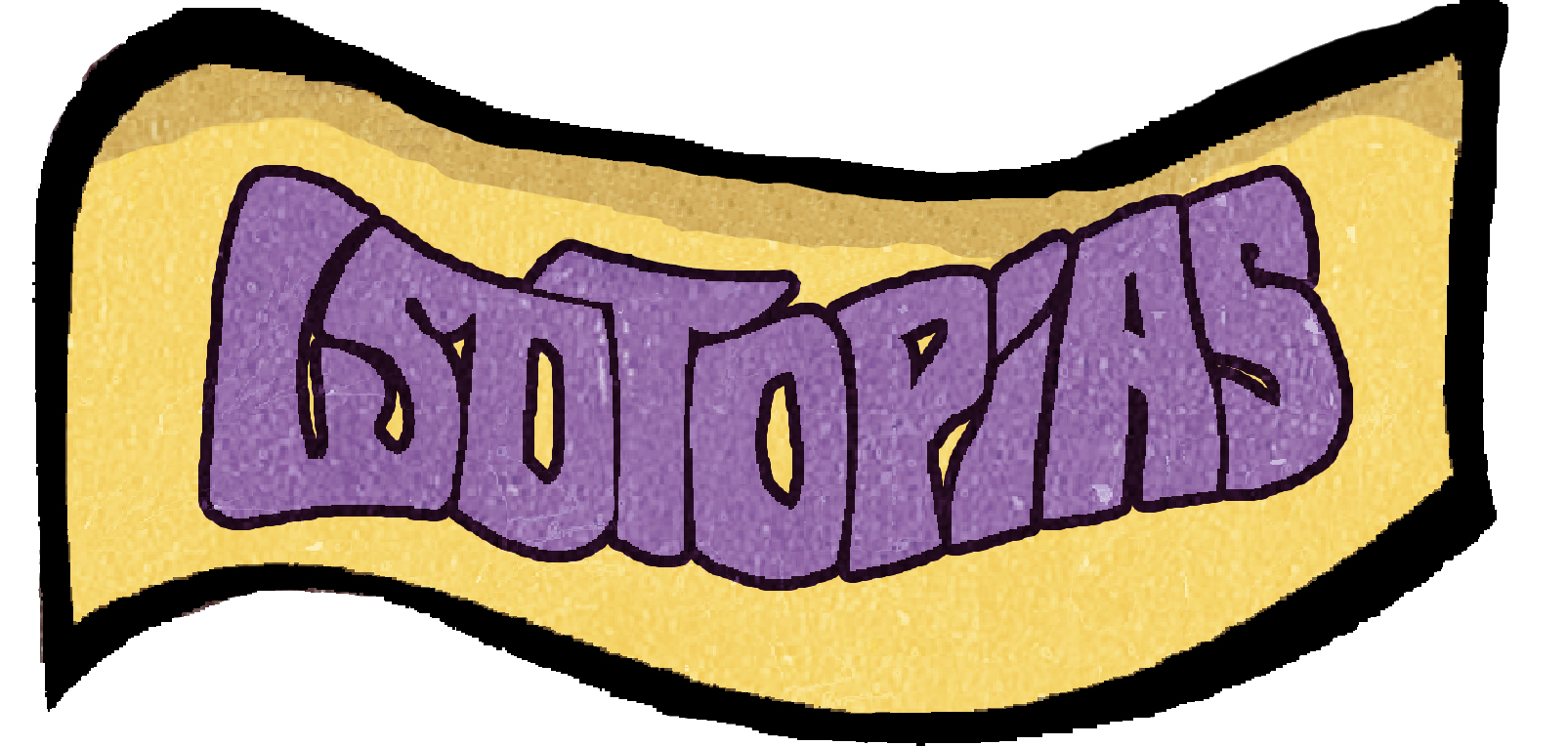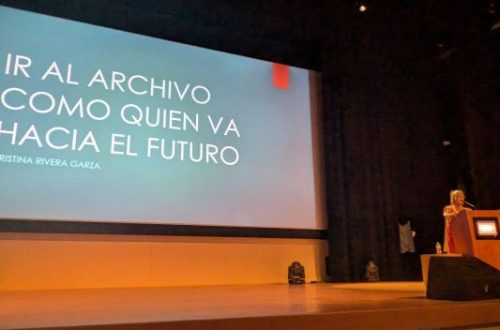
COMO PUPILA DESPIERTA
En mi vida he cruzado muchas fronteras. Últimamente la de San Diego-Tijuana. Veo mis pies avanzar como si ya conocieran de memoria las costuras del mundo. Cruzo porque colaboro con un colectivo llamado traducciones trepidantes. Artistas de San Diego y Tijuana que, como yo, han decidido vivir atentos, sin darle la espalda al territorio que nos cruza. Estamos por lanzar el volumen 1.5 de nuestra publicación, y como en el primer número, la frontera sigue siendo el pulso. ¿Cómo no escribir desde ahí si nos atraviesa hasta en el habla? Se aparece como un ojo vigilante, una pupila siempre despierta.
Algunos dicen que las fronteras son necesarias. Que son un mecanismo para proteger la soberanía, para que los países puedan organizarse, cuidarse, delimitar su casa. Si las reglas se respetaran, si las agencias migratorias hicieran su trabajo con ética y justicia, quizás podrían funcionar como filtros y no como cuchillas. Pero ese no es el caso de Estados Unidos, ni de varios paises del norte global. Ahí, los agentes migratorios no son guardianes, son todo lo contrario, son perros entrenados para intimidar y humillar.
Al principio miraba a la frontera como se lee: “Aquí empieza la patria”. Así dice el letrero en el puente de entrada a México. Para mí, la frontera era un artefacto absurdo, una invención obsesionada con dividir a los cuerpos según la cantidad de miedo que despierten. Porque eso somos para ellos: los otros, los pobres, los distintos. Y Estados Unidos, como buen imperio, le teme a lo que no puede controlar.
Nunca se me había ocurrido pensar en la frontera como un muro protector. Como un escudo que defiende a Latinoamérica del avance del coloso del norte. Lo he escuchado. Lo entiendo. Pero no puedo creerlo del todo. Porque si ese monstruo quisiese, ya nos habría tragado. Porque así operan, avanzan sin mirar a quién pisotean.
Para un estadounidense, cruzar es un trámite. Un pasaporte y ya. Para los mexicanos, la historia es otra. La visa es marca, es recordatorio de que no pertenecen. No, la frontera no protege. Se filtra el miedo, el racismo, la violencia, los intereses del capital. Lo que yo veo es una línea que duele, que separa, que aísla. Nada más devastador que sentirse afuera, expuesto, no bienvenido como le pasa al nuevo alumno al cambiar de escuela.
El monstruo ya está aquí. Se cuela en todos los gobiernos latinoamericanos, en las calles, en nuestras lenguas. Pero no por eso vamos a rendirnos. En nuestro colectivo y también aquí, hacemos de la palabra una trinchera. Traducimos lo que el poder quiere borrar, escuchamos a quienes no se les suele escuchar. Hacemos memoria en voz alta. Eso también es resistir.
*
In my life, I have crossed many borders. Lately, the one between San Diego and Tijuana. I watch my feet move forward as if they already knew by heart the seams of the world. I cross because I collaborate with a collective called Trembling Translations. Artists from San Diego and Tijuana who, like me, have decided to live alert, without turning our backs on the territory that cuts through us. We are about to launch volume 1.5 of our publication, and as in the first issue, the border remains the pulse. How could we not write from there if it pierces us even in our speech? It appears like a vigilant eye, a pupil that never sleeps.
Some say borders are necessary. That they are a mechanism to protect sovereignty, so that countries can organize themselves, take care of themselves, delineate their home. If the rules were respected, if immigration agencies did their work with ethics and justice, perhaps they could function as filters and not as blades. But that is not the case in the United States, nor in several countries of the Global North. There, immigration agents are not guardians, they are the opposite, dogs trained to intimidate and humiliate.
At first, I looked at the border as the sign reads: “Here begins the homeland.” That is what the sign on the bridge into Mexico says. To me, the border was an absurd artifact, an invention obsessed with dividing bodies according to the amount of fear they provoke. Because that is what we are to them: the others, the poor, the different. And the United States, like any good empire, fears what it cannot control.
It had never occurred to me to think of the border as a protective wall. As a shield defending Latin America from the advance of the northern colossus. I have heard that idea. I understand it. But I cannot fully believe it. Because if that monster wanted to, it would have devoured us already. That is how they operate, they move forward without caring who they trample.
For an American, crossing is a simple procedure. A passport and that’s it. For Mexicans, the story is different. The visa as a mark, as a reminder that they do not belong. No, the border does not protect. What leaks through is fear, racism, violence, the interests of capital. What I see is a line that hurts, that separates, that isolates. Nothing more devastating than feeling outside, exposed, unwelcome, like the new student changing schools.
The monster is already here. It seeps into every Latin American government, into the streets, into our languages. But that does not mean we will surrender. In our collective, and here as well, we turn language into a trench. We translate what power wants to erase, we listen to those who are rarely listened to. We make memory out loud. That, too, is resistance.

Yasmín Rojas es co-directora de Isotopías. Actualmente escribe su tesis doctoral sobre la poesía y las canciones de Idea Vilariño.
Foto de portada de Sara Asadi





